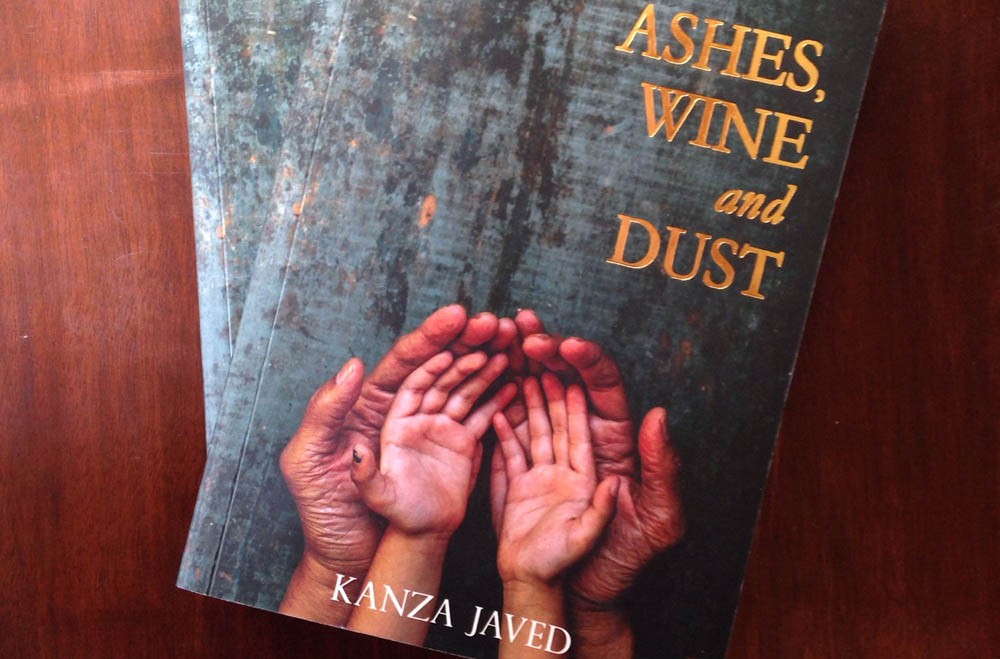
Kanza Javed’s debut novel is the here-and-now of Pakistani story-telling

What is it that prompts a Pakistani writer, telling a very Pakistani story, to publish abroad? The obvious reasons, often cited by negative critics, are a search for an audience that wants to read a certain ‘exotic’ account, the lure of international awards, and a lack of trust in local publishers.
What such cynics tend to ignore is that a young writer, taking small and tentative steps, is overawed by the very limited number of local publishers, almost none of whom seem interested in publishing literary texts by unfamiliar names. Add to that the fact that there is a very small market for books in English, and one can start to understand what forces might have influenced Kanza Javed to publish her debut novel in India.
The issue is of particular significance because the editors have not paid attention to removing the many typographical errors that have been left in the book. A larger publishing house would have, perhaps, treated this novel with the respect that it deserves.
Ashes, Wine and Dust is a tour de force. To draw an evolutionary connection, it announces Kanza’s arrival in the same vein that The Crow Eaters announced Bapsi Sidhwa, In The City By The Sea announced Kamila Shamsie, and The Story of Noble Rot announced Uzma Aslam Khan. But, perhaps, more than many other novels, what sets this one apart is its negotiation of the tenuous space of post-9/11 English fiction from Pakistan.
Shazaf Fatima Haider’s How It Happened was the first important English novel to deviate from the familiar storyline; Ashes, Wine and Dust manages to incorporate the necessity of acknowledging the polarisation of a society and its literary tradition in the backdrop of the political topography of a post-9/11 Pakistan. While 9/11 and its aftermath remain integral to the latter parts of the book, the first part innocently peeks from under the ashes of a now forgotten past.
The story follows Mariam, a precocious young girl, who tags along behind the forceful personality of her grandmother, steals moments of intimate compassion with her misunderstood but well-loved grandfather, and tries to hold on to familiar landmarks while moving to and from her ancestral village, Lahore and Washington DC. On the way, she gathers gossip, unravels truth, discovers familial intricacies, and undergoes gradual phases of creating her own identity.
Kanza’s great gift as a writer is that she is able to grasp the essence of a developing human relationship, and as soon as she knows that the reader is immersed in the world being unraveled, she snaps her fingers, and almost cruelly, the character that has attracted attention vanishes from the stage, and our focus is brought back to Mariam. Her grandfather, whose progressive outlook stands in sharp contrast to the rural setting in which he lives, her lonely but engaging-with-her-solitude grandmother, the Hindu boy who might be related to her grandfather, and the brother who healed broken wings but vanishes from her sight, are all characters that the reader might feel for.
However, Kanza does not allow one to develop a close relationship with any character except Mariam. Other characters like the US-adapted Lubna and Rizwan, her unlikely friend Richard, and her docile father contribute to making Mariam’s story real.
Ashes, Wine and Dust is essentially a novel about loss. It does not only talk of the loss of familiar notions, but also of the loss of a narrative that one can identify with. It caresses the fragility of love, the tenacity of emotions, and the never-ending roller-coaster called life. It explores the ideas of belonging, fluid definitions of home, and the cyclical nature of memory. Mariam’s dadda always manages to scrape through the dust that gathers with time.
Kanza’s narrative style is of particular interest. She values understatement. She realises the potential that an ordinary human situation or conversation is mutable, moulds it to a point of climactic ecstasy, and then breaks the heart of her reader by reinforcing the inevitability of loss and grief. Like the poetry of John Keats, her prose contains undertones of profound melancholy by stopping at the moment prior to heightened climax.
The novel’s progression replicates of the slow, simmering summers of Lahore, and her narrative gradually develops with the understanding that slow-cooking optimises taste. It also echoes the now-forgotten, never-ending stories once told by grandmothers in the dead of the night.
Ashes… is a very important step in the development of Pakistani English fiction. When you recognise the pathos of the ashes of the past, and allow for the dust of a hazy future to settle, what you are left with is the heady wine of the here-and-now. Kanza Javed’s debut novel is the here-and-now of Pakistani story-telling.